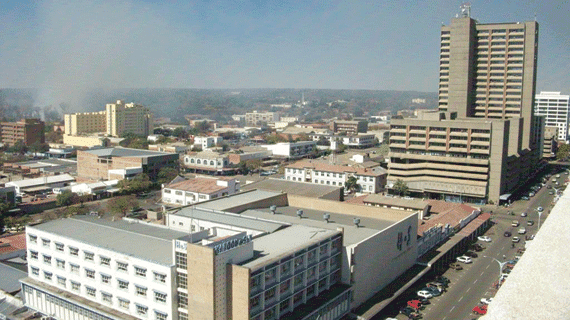Bulawayo residents are struggling to cope with the ever-rising cost of living as the country’s economic crisis deepens.
The sharp increase in the prices of basic commodities such as mealie meal, bread, sugar, cooking oil and many others has made life become hard for many who are not gainfully employed.
Those who are employed are struggling as the local currency is losing value every day.
The struggles of the ordinary person in the city have also been compounded by the recent hikes in fuel and power tariffs meaning to say one has to pay more to move from one place to another and to keep the lights on at home.
Commuter omnibus operators are now charging ZW$5 per trip into town following the recent surge in fuel prices which saw diesel getting pegged ZW$15.49 per litre with petrol at ZW$14,97 per litre.
The Zimbabwe Energy Regulatory Authority (ZERA) this week also approved a 319 percent hike in power tariffs, a development that will now see consumers purchase electricity at ZW162, 16 cents per kWh up from ZW38, 61 cents.
Electricity tariffs, according to the power utility (Zimbabwe Electricity Supply Authority), will now be reviewed monthly and indexed at interbank market rate as a way of improving efficiency.
Bread, which has of late disappeared from many shelves is reportedly going to be brought back at a price of ZW$15 a loaf, up from ZW$9.
Residents who spoke to CITE said their situation was not getting better but worsening, adding it was hard for them to survive.
“We are really struggling in Zimbabwe; it is becoming very hard to survive under these conditions because no matter how much we try as long as fuel prices keep rising there is nothing much we can do as shop owners no longer display their prices,” said Nomusa Dube.
“Shop owners know that their prices are no longer constant. You buy a commodity today at a certain price but the next day the price would have changed. Groceries of ZW$1000 are not enough to survive on for the whole month or even to feed a family of eight for the whole month. People now have to survive on strategies of buying cash so as to buy foreign currency to do shopping in Musina or even Botswana.”
She said the hike in kombi fares was dealing residents a heavy blow with ZUPCO buses too few to transport everyone.
Thembi Siwela, another resident, said Zimbabwe had become so hard to live in without alternative means for survival.
“Zimbabwe is now a country for people who have good strategies. As it is, everything is not stable, even electricity tariffs are increasing but most of the time there will be no electricity,” she said.
“We just survive on using other alternatives such as firewood and gas. I can no longer say these are alternatives as they are now costly. This country is no longer for the poor.”
She said gas prices were also beyond the reach of many.
Nigel Mutasa, also a Bulawayo resident, said the cost of living had become unbearable for many in the country.
“We are failing to survive and secure a better future for our children,” he bemoaned.
“As it is, we cannot afford meat or even bread. We used to have substitutes for bread such as flour but we c no longer afford that. Zimbabwe has become a country where we are failing to survive; everything is just upside down from school fees to food; nothing is affordable at all.”
Consumer Council of Zimbabwe (CCZ) Matabeleland regional manager, Comfort Muchekeza, said the situation had become untenable for many people.
“The consumers are suffering just as everyone can see,” said Muchekeza.
“As CCZ we are not just the watchdogs, we are also part of the consumers and therefore equally affected.”
Muchekeza called for a multi-stakeholder approach in resolving the challenges facing Zimbabwe, adding it was not only a responsibility for the monetary authorities.
Economist, Kipson Gundani, told CITE, the Reserve Bank of Zimbabwe (RBZ) was to blame for the inflationary environment through its continuous printing of money.
“Like any country, when we encounter a problem, you first have to understand the origin of the problem, where it’s coming from. We have to understand why the cost of living is increasing but people’s salaries remain the same,” he said.
“The primary factor is inflation pressure. There is too much money in the economy which is brought by direct money printing by the central bank. There is a need to stop unnecessary money printing.”
He added: “Prices are very slippery upwards but salaries remain the same. The biggest solution is to get the economy right is by coming up with fundamentals right. These include politics, policies, prices where markets should be free and partnerships where we are saying there is need to work on cultivating international relations and work with the rest of the world.”
Gundani said the future looked gloomy for the Zimbabwean economy with Finance and Economic Development Minister, Mthuli Ncube’s austerity measures seemingly not working.
“So far all the cylinders are pointing south,” said Gundani.
“When the Minister of Finance first introduced what we know as austerity measures, it was spot on but due to insincerity in implementing some of the reforms we are now misfiring as a nation.”

